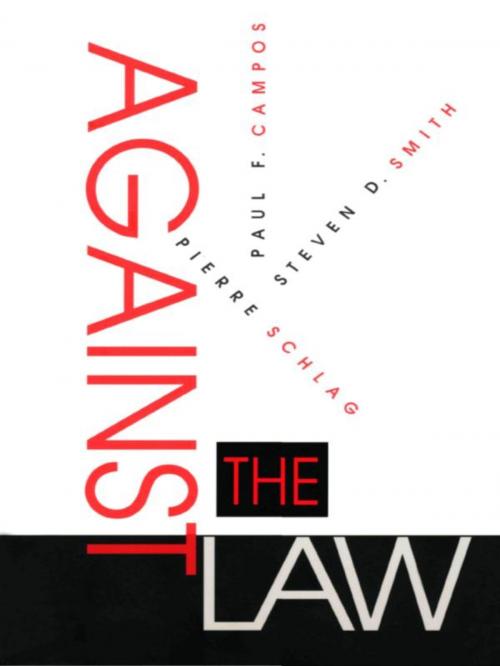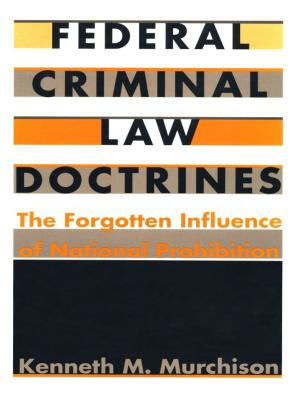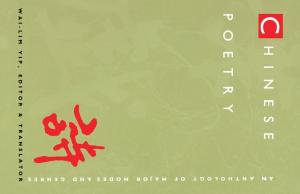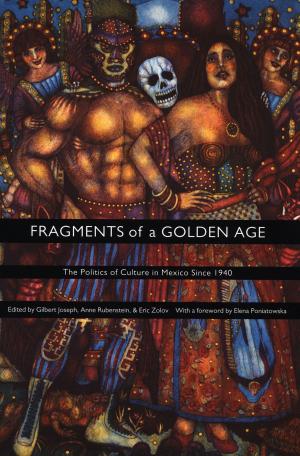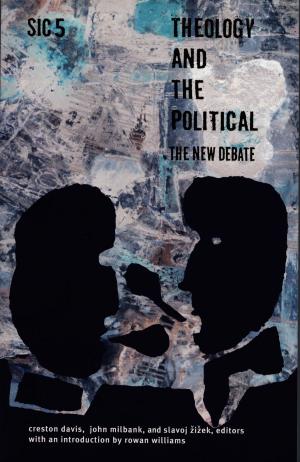Against the Law
Nonfiction, Social & Cultural Studies, Political Science, Politics, Labour & Industrial Relations, Reference & Language, Law| Author: | Paul F. Campos, Pierre Schlag, Steven D. Smith | ISBN: | 9780822396055 |
| Publisher: | Duke University Press | Publication: | October 22, 1996 |
| Imprint: | Duke University Press Books | Language: | English |
| Author: | Paul F. Campos, Pierre Schlag, Steven D. Smith |
| ISBN: | 9780822396055 |
| Publisher: | Duke University Press |
| Publication: | October 22, 1996 |
| Imprint: | Duke University Press Books |
| Language: | English |
A fundamental critique of American law and legal thought, Against the Law consists of a series of essays written from three different perspectives that coalesce into a deep criticism of contemporary legal culture. Paul F. Campos, Pierre Schlag, and Steven D. Smith challenge the conventional representations of the legal system that are articulated and defended by American legal scholars. Unorthodox, irreverent, and provocative, Against the Law demonstrates that for many in the legal community, law has become a kind of substitute religion—an essentially idolatrous practice composed of systematic self-misrepresentation and self-deception.
Linked by a persistent inquiry into the nature and identity of “the law,” these essays are informed by the conviction that the conventional representations of law, both in law schools and the courts, cannot be taken at face value—that the law, as commonly conceived, makes no sense. The authors argue that the relentlessly normative prescriptions of American legal thinkers are frequently futile and, indeed, often pernicious. They also argue that the failure to recognize the role that authorship must play in the production of legal thought plagues both the teaching and the practice of American law. Ranging from the institutional to the psychological and metaphysical deficiencies of the American legal system, the depth of criticism offered by Against the Law is unprecedented.
In a departure from the nearly universal legitimating and reformist tendencies of American legal thought, this book will be of interest not only to the legal academics under attack in the book, but also to sociologists, historians, and social theorists. More particularly, it will engage all the American lawyers who suspect that there is something very wrong with the nature and direction of their profession, law students who anticipate becoming part of that profession, and those readers concerned with the status of the American legal system.
A fundamental critique of American law and legal thought, Against the Law consists of a series of essays written from three different perspectives that coalesce into a deep criticism of contemporary legal culture. Paul F. Campos, Pierre Schlag, and Steven D. Smith challenge the conventional representations of the legal system that are articulated and defended by American legal scholars. Unorthodox, irreverent, and provocative, Against the Law demonstrates that for many in the legal community, law has become a kind of substitute religion—an essentially idolatrous practice composed of systematic self-misrepresentation and self-deception.
Linked by a persistent inquiry into the nature and identity of “the law,” these essays are informed by the conviction that the conventional representations of law, both in law schools and the courts, cannot be taken at face value—that the law, as commonly conceived, makes no sense. The authors argue that the relentlessly normative prescriptions of American legal thinkers are frequently futile and, indeed, often pernicious. They also argue that the failure to recognize the role that authorship must play in the production of legal thought plagues both the teaching and the practice of American law. Ranging from the institutional to the psychological and metaphysical deficiencies of the American legal system, the depth of criticism offered by Against the Law is unprecedented.
In a departure from the nearly universal legitimating and reformist tendencies of American legal thought, this book will be of interest not only to the legal academics under attack in the book, but also to sociologists, historians, and social theorists. More particularly, it will engage all the American lawyers who suspect that there is something very wrong with the nature and direction of their profession, law students who anticipate becoming part of that profession, and those readers concerned with the status of the American legal system.
